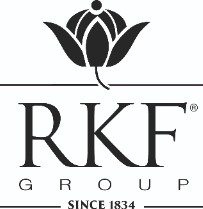
LEARN HOW CONRAD KOH SAMUI'S ON‑SITE FARM PUTS DELICIOUS AND SUSTAINABLE INGREDIENTS CENTERSTAGE AT THIS LUXURY HOTEL (Thaïlande)
Two‑thirds of travelers say environmental change is top‑of‑mind during vacation planning |
 |
LEARN HOW CONRAD KOH SAMUI'S ON‑SITE FARM PUTS DELICIOUS AND SUSTAINABLE INGREDIENTS CENTERSTAGE AT THIS LUXURY HOTEL (Thaïlande)
Two‑thirds of travelers say environmental change is top‑of‑mind during vacation planning |
Catégorie : Asie Pacifique - Thaïlande - Économie du secteur
- Développement durable
Ceci est un communiqué de presse sélectionné par notre comité éditorial et mis en ligne gratuitement le 08-11-2023
Payap "Pong" Khunkayan joined the team at Conrad Koh Samui a decade ago as a bellman, proudly greeting guests at the luxury resort overlooking the Gulf of Thailand and transporting luggage to and from 81 hillside-nestled villas.
Now, he’s the luxury resort’s onsite farmer.
A 2.5-acre farm called Project Iris (named for the Greek goddess of the rainbow) opened at Conrad Koh Samui in late 2019 after Ruben Gabino, the hotel’s general manager, discovered unused land dating back to when Conrad Koh Samui was built.
He and the owners believed this land could become a farm for the hotel’s restaurants, but they needed someone to bring this belief to life.
Khunkayan traded in his bellman uniform for a pair of mud boots and jumped in, planting crops that eventually arrive on guests’ plates.
Each morning, Khunkayan performs a full inspection of the 2.5-acre farm to monitor the progress of the crops.
He waters and prunes rows of plants and trees before feeding hundreds of free-range ducks, geese, chickens, and rabbits that roam the tropical landscape.
His trusty sidekick, a frisky white goat named Johan that he has raised since birth, serves as both the farm’s unofficial groundskeeper and mascot.
“Farming is also about taking care of our guests, just in a different way. Growing organic, chemical-free vegetables and fruits is a form of hospitality.” Payap "Pong" Khunkayan Sustainability Project Supervisor, Conrad Koh Samui.
Farming is in Khunkayan’s blood. As a child, he raised animals and grew vegetables on his family’s farm in Thailand.
“I am now utilizing the basic knowledge and skills I learned from my parents,” he said.
“I personally love doing what I do, and that’s why I can do it well.”
Depending on the season, Project Iris supplies 60% to 70% of produce (by weight) used in Conrad Koh Samui’s kitchens. In addition to supplying the hotel’s eight restaurants and bars with fresh fruits, vegetables, and eggs, the garden’s home-grown lemongrass, citronella, and turmeric are turned into teas as well as compresses and body oils for the spa.
The property also composts more than two tons of food waste each month to be recycled and reused as fertilizer for the garden.
The project aligns with Hilton’s Travel with Purpose strategy to drive responsible travel and tourism by creating positive environmental and social impact across its operations, supply chain and communities.
Per month, Project Iris supplies:
- 3,000 kg of fresh produce from the farm for guests and team members
- 6,000 free range chicken eggs
- 4,500 free range duck eggs
“The idea from the beginning was to have a production farm—not a show farm—to grow the best possible ingredients for our restaurants and reduce our food waste.” Ruben Gabinon General Manager, Conrad Koh Samui.
The first step was to plant trees for shade so crops could survive the Thai heat, establishing a rich foundation of soil by composting scraps and unused food from the hotel’s kitchens, and building coops to raise egg-laying hens.
After learning what would grow best in the climate, the hotel’s culinary team designed menus that could rely on the ingredients the farm could produce.
Chefs now source multiple varieties of eggplant for savory curries, incorporate heat-tolerant mulberries into spicy sauces, bring a fragrant punch to soups with fresh cilantro, and add crunch to stir-fry dishes with crisp yard-long beans.
Mixologists infuse ginger, mint and more into syrups and garnishes for handcrafted cocktails and mocktails. Nothing travels more than a few hundred steps from garden to plate (or glass).
Even hotel guests can get a hands-on experience. Twice-daily tours give guests of all ages a first-hand look at how the farm’s sustainable agriculture practices preserve the natural ecosystem and create a circular food system for the hotel.
“I want our tours to provide guests with both a memorable experience and a better understanding of farming and the plants they eat,” Khunkayan said.
Guests collect just-laid eggs that become the next morning’s breakfast and learn how to create compost fertilizer by mixing eggshells, coffee grounds and dead leaves, giving them a chance to feel a special connection to the local landscape.
“By telling a story and connecting the dots during our tours and workshops, we ensure everyone walks away from the farm with more knowledge,” Gabino said.
|
|





